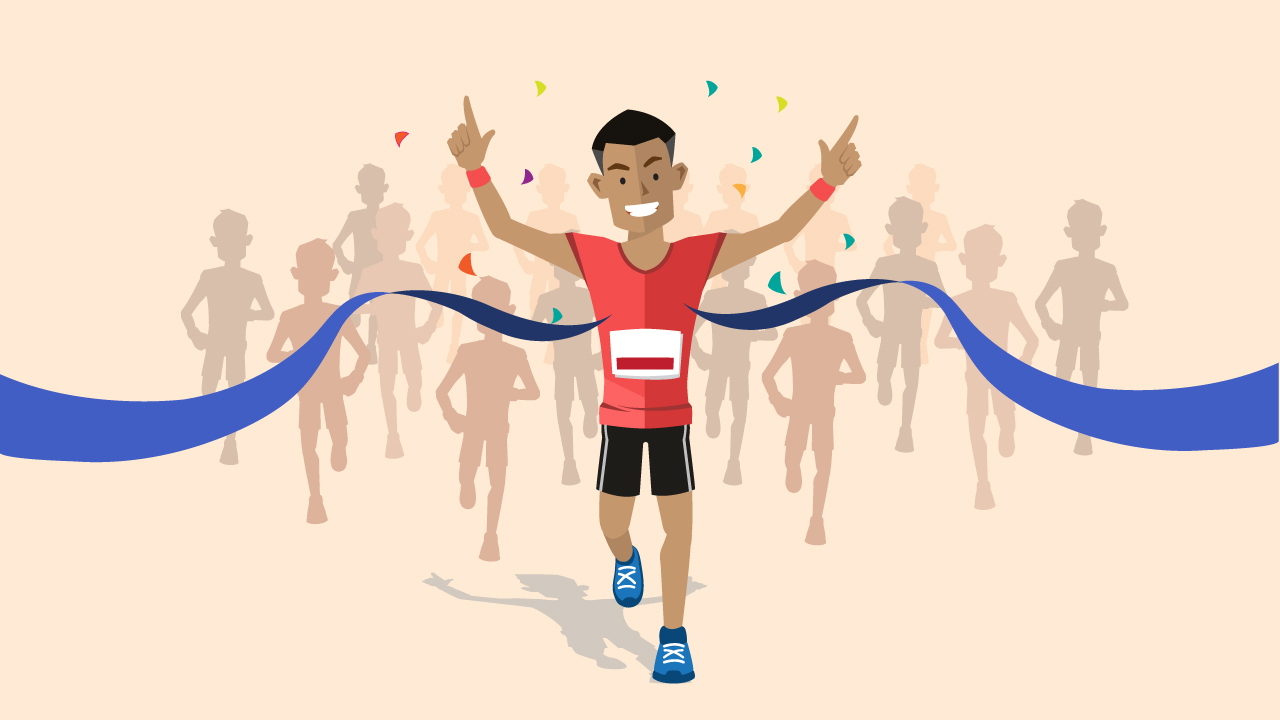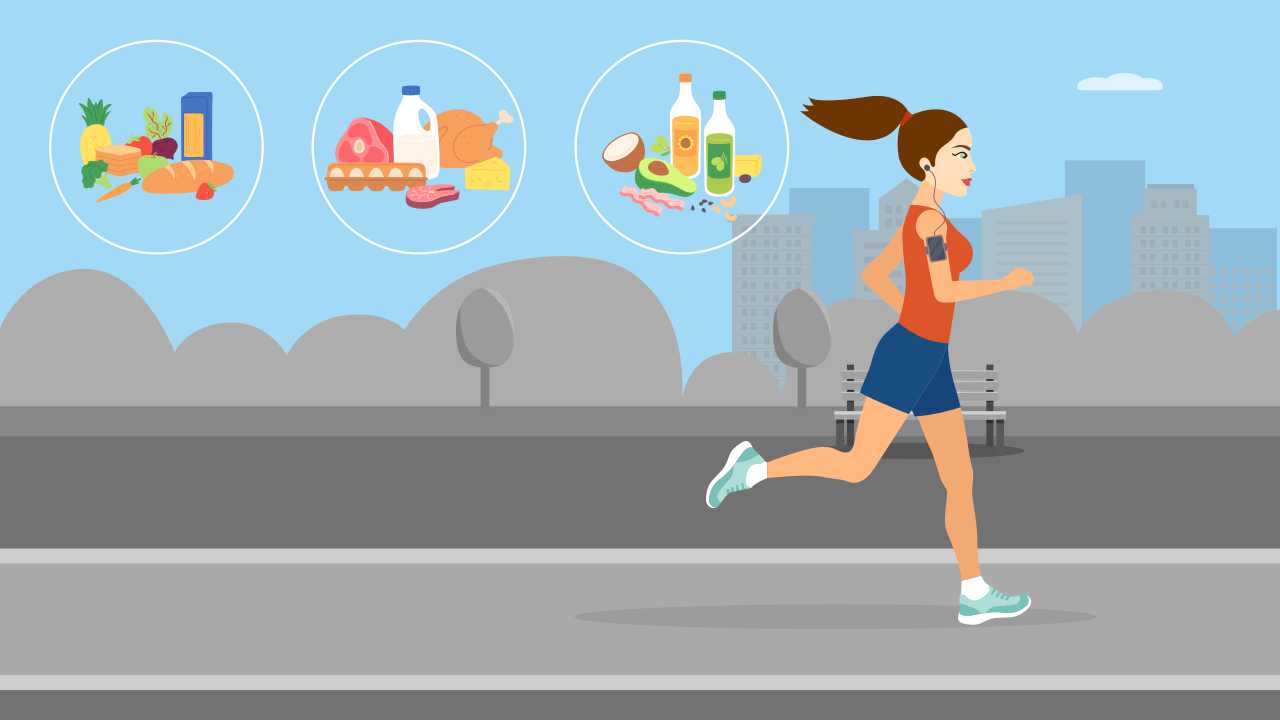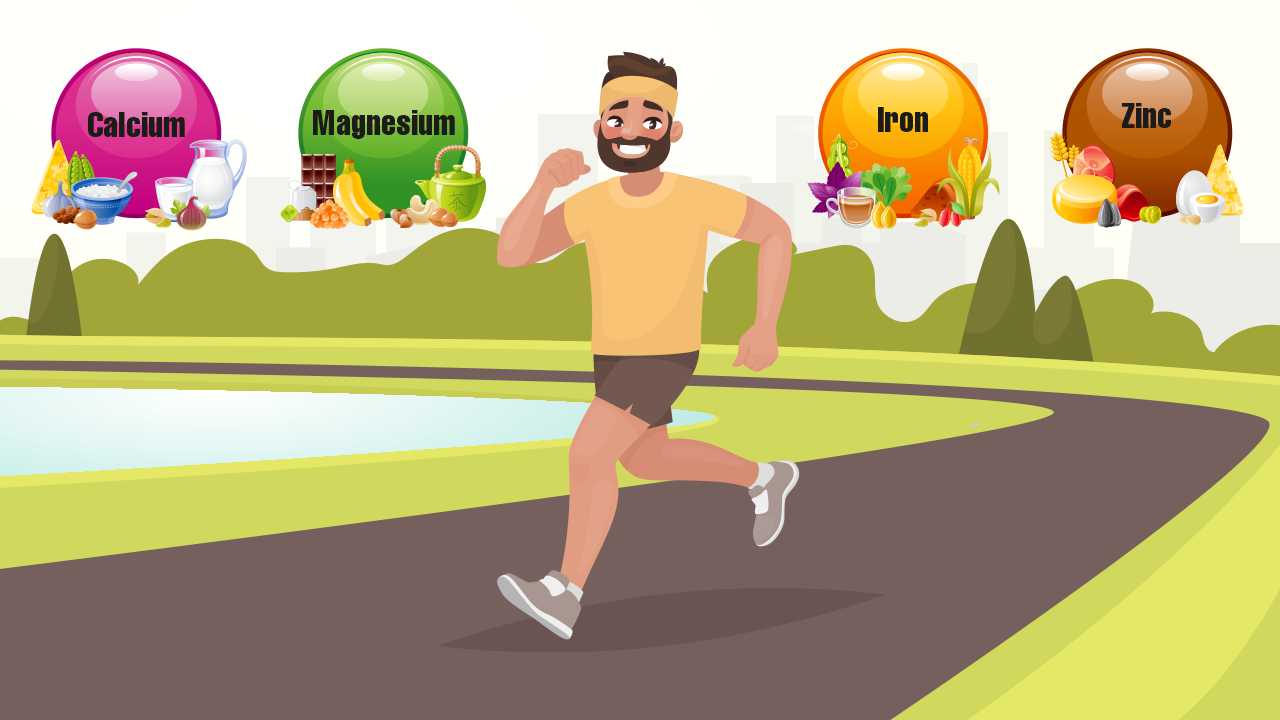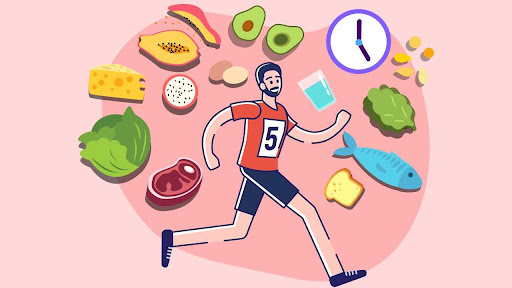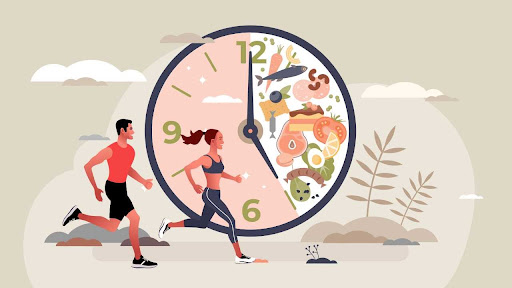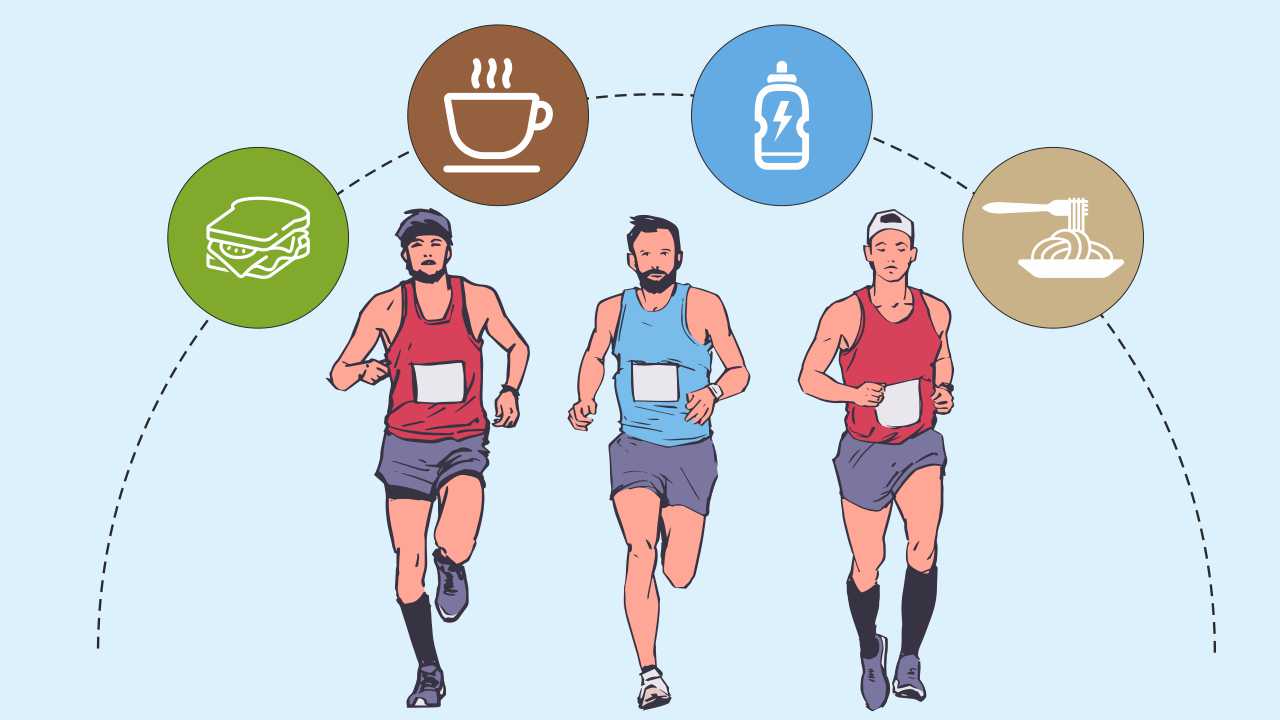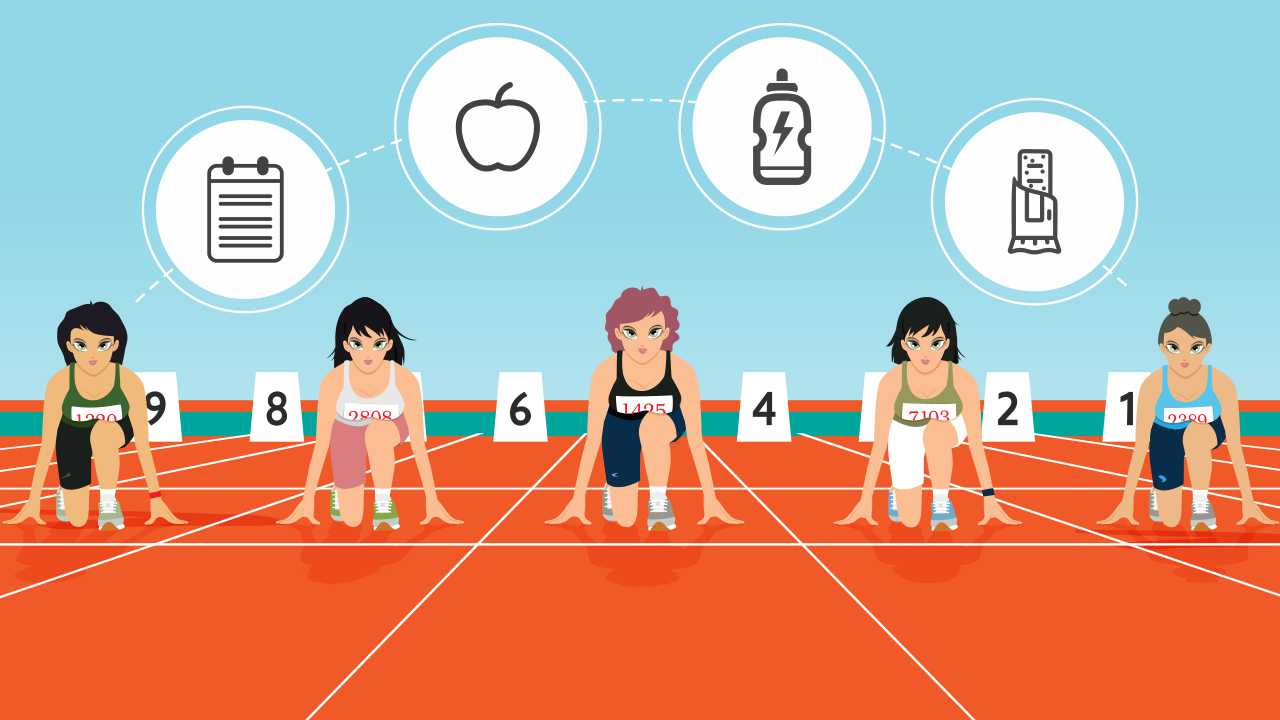
How to Select a Sports Drink for Running
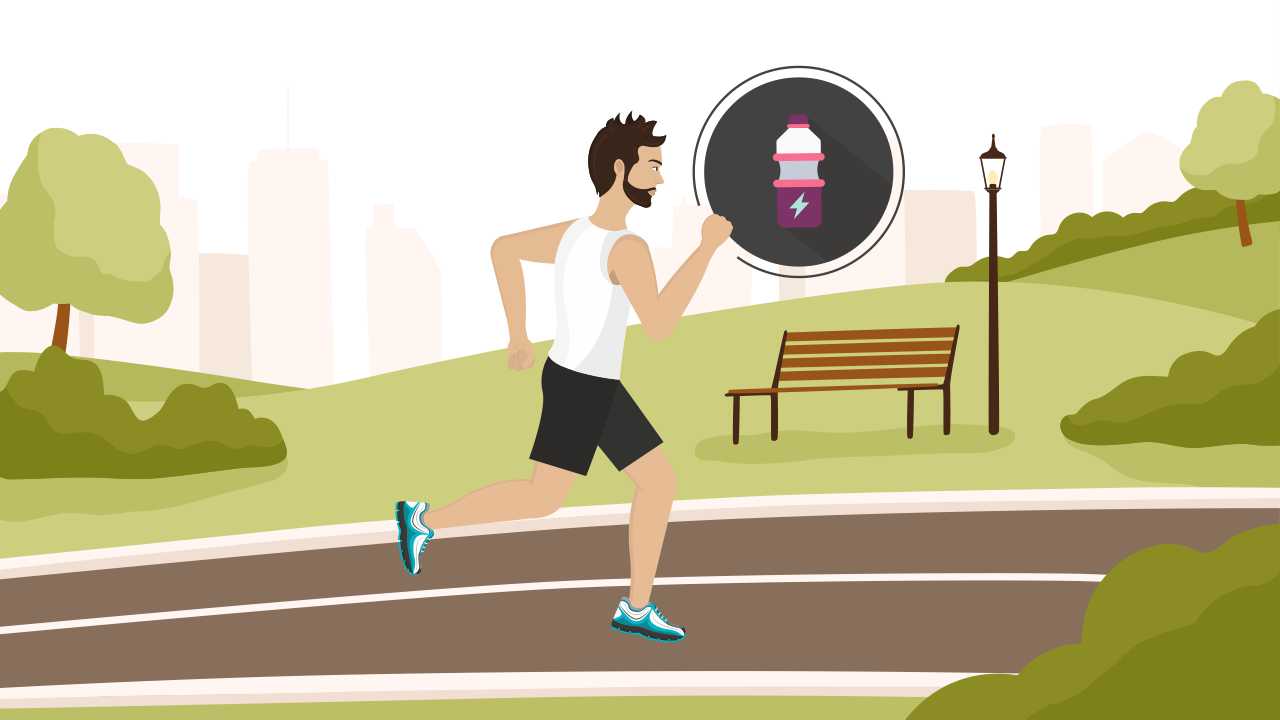
While selecting liquids for running, you may be in a dilemma whether to opt for a sports drink for running or stick with water. But if you have opted for a sports drink to consume during your runs, you need to consider two main ingredients, sodium and carbohydrate.
Selecting a drink as per your training duration and environment
If a training session or race lasts more than one hour, your muscle glycogen stores get depleted and blood glucose becomes the primary fuel source. It is advisable to consume carbohydrates along with your fluids for these sessions. This carbohydrate can be in the form of either a carbohydrate-containing beverage like a sports drink or a small snack consumed alongside water.
A good rule of thumb is that if an exercise session lasts longer than two hours, or if a shorter-duration event takes place in an extremely hot or humid environment that causes excessive sweating, it is advisable to consume a sports drink that contains both sodium and carbohydrate. If your training session or event does not fit any of these criteria, then water is enough to stay optimally hydrated throughout your run. Many amateur runners and fitness enthusiasts make the mistake of consuming calorie-containing beverages when they do not need them, thereby undermining their weight-management goals.
Let us assume you are participating in longer training runs and events and know that you need to drink something other than plain water to stay hydrated and maximize your energy levels. Consuming a sports drink during running meets several needs including maintenance of your energy supply, prevention of dehydration, and electrolyte replacement to minimize fatigue and optimize performance.
Also read: Essential Guide to Fuelling for Long-distance Runs
A widely accepted benefit of consuming a sports drink for running that contains carbohydrates and electrolytes is that the drinks which include glucose, fructose, and sodium can improve athletic performance by optimizing water absorption and sustaining metabolism during exercise. Sodium intake during exercise has been shown to stimulate thirst, thereby encouraging you to drink fluids, preventing dehydration and replacing sweat loss.
Factors to consider while selecting a sports drink for running
There are countless brands and types of sports drinks, so what is the best sports drink for running? It is important to note that the advice below also applies to energy gels, which are small, single-serving packets of a sweet gel that contains carbohydrates, electrolytes, and at times, caffeine. While the drinks and gels are nutritionally similar, the primary benefit of energy gels is that they are compact and easy to carry during a run.
When reviewing sports drinks for running, you can look for these five Ts:
1. Taste
The taste or flavor of the beverage you select is important because you want something palatable to promote fluid replacement. If you do not like the taste of a beverage, you may not drink enough of it during your run. Moreover, it is essential to consider aftertaste as some sports drinks for running leave a distinct taste that may be unpleasant. If the beverage leaves a bad taste in your mouth or makes your mouth feel dry or sticky, it can lead to discomfort and a reduced drive to drink.
2. Temperature
It is recommended that ingested fluids should be cooler than the ambient temperature as this increases the palatability of the fluid. But fluid temperature choices are often based on cultural preferences and learned behaviors and may not be something you can control during an event. So since the likelihood of someone drinking more fluid is based more on taste compared to temperature, it becomes a matter of individual choice.
3. Timing
It is advisable to start drinking sports drinks for running early during exercise. In fact, fluid replacement should start before the exercise commences and continue after the session or event concludes.
Before exercise: Drink 5ml/kg to 7ml/kg of body weight at least four hours before exercise. Drink 3ml/kg to 5ml/kg more two hours before exercise if urine is not produced or is very dark.
Also read: How to Plan Hydration for a Run on a Hot and Humid Day
During exercise: The goal is to prevent more than 2% loss in body weight, so the amount of fluid that you consume during a competition or race should be determined via trial and error during your training. Remember that race day is not the time to be guessing about how much sports drink to consume.
After exercise: The consumption of your normal meals and beverages should enable you to restore your hydration levels. If rapid recovery is needed in a scenario wherein another competition is taking place on that same day, then drink 1.5L of fluids for every kg of body weight lost.
4. Type of electrolyte
While sports drinks for running may contain a variety of electrolytes, it is sodium that has been specifically associated with ideal fluid absorption and improved performance when combined with glucose and fructose.
Choose a sports drink that contains more than 100mg of sodium per 240ml serving. This is an important consideration as some popular brands fall below this threshold and may not meet the hydration needs of runners performing high-intensity exercise.
5. Total carbohydrate concentration
When considering carbohydrate volume within a beverage, it is necessary to think about meeting energy needs, preventing fatigue, and understanding the impact the sports drink will have on your stomach. Additionally, take note of the rate at which the fluid moves through your stomach and into the small intestine, which is called gastric emptying.
To maintain performance levels and prevent fatigue, choose sports drinks for running that provide about 30g to 60g of carbohydrate for every hour of training. Beverages containing 6g to 8g of carbohydrate per 100ml (3.5 oz) of fluid, or 6% to 8% carbohydrate concentration, will have little effect on gastric emptying and meet the energy needs of most individuals when running.
Choosing a sports drink (or energy gel) that helps you meet your energy needs and optimizes your performance is vital for you to succeed as a runner. Endurance athletes have a lot to consider during training and on race day, from their training programs and tapering strategies to nutrition and hydration plans. By finding a sports drink that matches your tastes and energy requirements, you are one step closer to reaching your goals.
References
1. Almond CS, Shin AY, Fortescue EB, et al. Hyponatremia among runners in the Boston Marathon. N Engl J Med 2005; 352: 1550–6.
2. ACSM’s Guidelines for Exercise Testing and Prescription (American College of Sports Medicine.) 11th ed 2020. Philadelphia: Wolters Kluwer, 2020.
3. Muth ND. Sports Nutrition for Health Professionals. Philadelphia: FA Davis, 2015.
4. Orru S, Imperlini E, Nigro E. et al. Role of Functional Beverages on Sport Performance and Recovery. Nutrients 2018; 10: 1470.
5. Rodriguez NR, Di Marco NM, Langley S. American College of Sports Medicine position stand. Nutrition and athletic performance. Med Sci Sports Exerc 2009; 41: 709–31.
6. Roy B. Exercise and fluid replacement. ACSM’s Health & Fitness Journal 2013; 17: 3.

